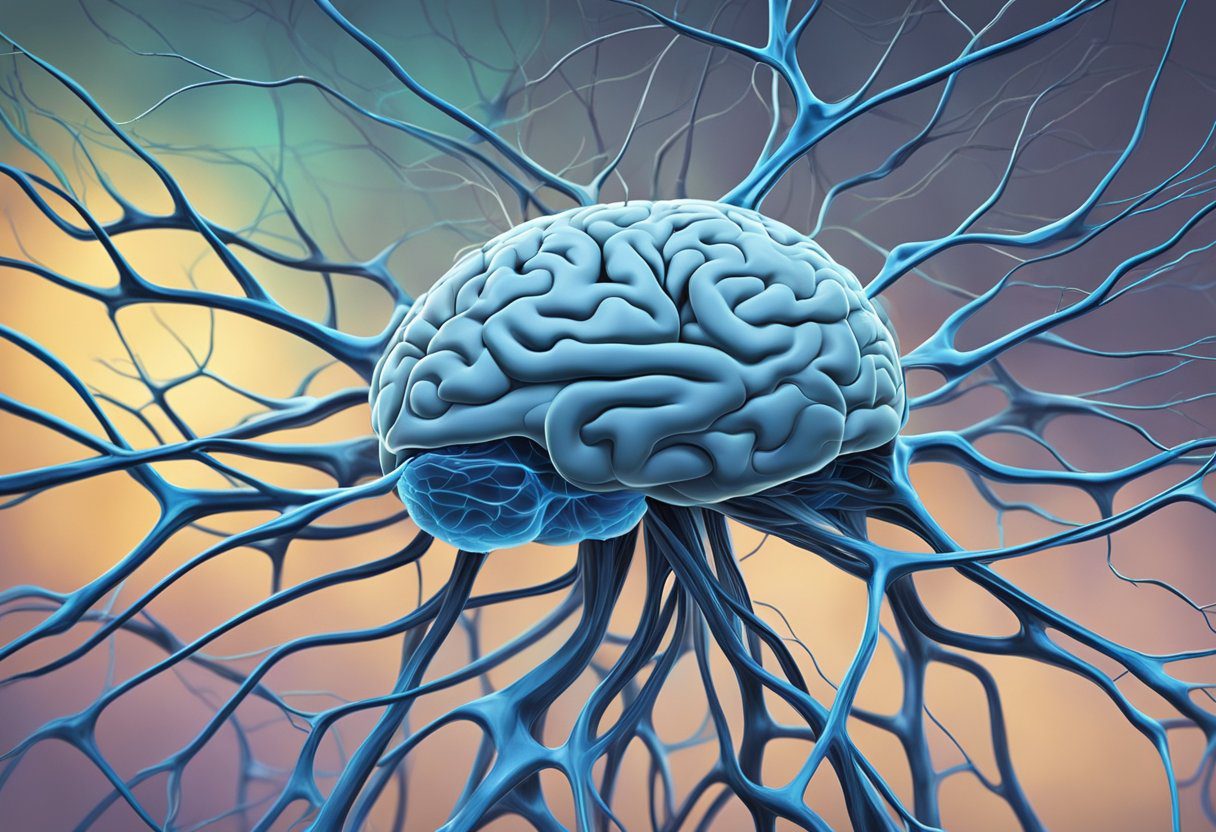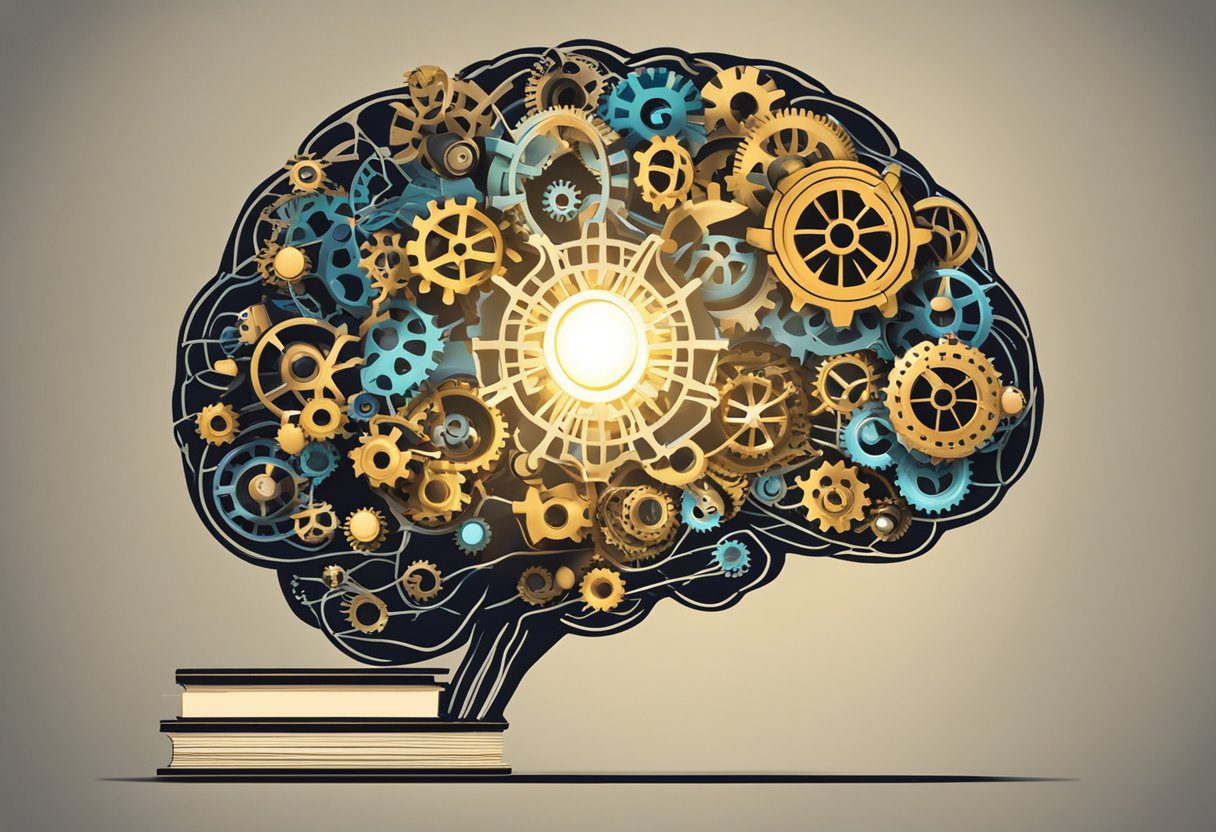Improving long-term memory is a common goal for many people, especially as they age. Long-term memory is the ability to store and retrieve information over a long period of time. It is an essential component of our cognitive abilities and plays a vital role in our daily lives.
Whether you are a student trying to retain information for exams, an employee trying to remember important details for work, or an older adult looking to maintain cognitive function, there are several strategies you can use to improve your long-term memory.

Understanding the mechanisms of long-term memory is important to know how to improve it. Long-term memory is stored in different areas of the brain, including the hippocampus and the cortex. The hippocampus is responsible for forming new memories, while the cortex is responsible for storing them. Memories are formed through a process called encoding, where information is transformed into a neural code that can be stored in the brain. Retrieval is the process of accessing stored information when needed. By understanding how long-term memory works, you can develop strategies to improve it.
Key Takeaways
- Long-term memory is the ability to store and retrieve information over a long period of time.
- Long-term memory is stored in different areas of the brain, including the hippocampus and the cortex.
- Understanding the mechanisms of long-term memory is important to develop strategies to improve it.
Understanding Long-Term Memory

Long-term memory is an essential component of cognitive abilities. It refers to the storage of information that lasts beyond a few seconds or minutes. The information in long-term memory can remain for an extended period, ranging from days to years or even a lifetime.
Brain Function and Memory
Memory is a complex process that involves various regions of the brain. The hippocampus, a region located in the temporal lobe of the brain, plays a vital role in the formation of long-term memories. The hippocampus helps in consolidating information from short-term memory into long-term memory.
The process of forming long-term memories involves the creation of neural connections between different regions of the brain. These neural connections are strengthened through repeated activation, which leads to the formation of permanent memories.
Aging and Memory Decline
As people age, their cognitive abilities tend to decline, including memory. The decline in memory is primarily due to the deterioration of brain function. The hippocampus, which is crucial for the formation of long-term memories, is one of the regions that are most affected by aging.
Moreover, the neural connections that support memory formation also tend to weaken with age. This weakening of neural connections can lead to a decline in memory performance.
However, research has shown that engaging in mentally stimulating activities, such as reading, solving puzzles, and learning new skills, can help preserve cognitive function, including memory, in older adults.
In summary, long-term memory is a critical component of cognitive abilities, and it involves the creation of neural connections between different regions of the brain. The hippocampus plays a vital role in the formation of long-term memories. As people age, their cognitive abilities tend to decline, including memory, but engaging in mentally stimulating activities can help preserve cognitive function.
Lifestyle Factors Affecting Memory

Memory is a complex process influenced by a variety of factors, including lifestyle choices. Here are some lifestyle factors that can impact long-term memory:
Importance of Sleep and Rest
Sleep is essential for good health, including brain health. During sleep, the brain consolidates memories, transferring information from short-term to long-term memory. Lack of sleep can cause memory impairment and cognitive decline. Therefore, it is crucial to get enough sleep and rest for good memory function.
Exercise and Brain Health
Physical activity is not only good for the body but also for the brain. Exercise increases blood flow to the brain, which can improve memory and cognitive function. According to research, aerobic exercise, such as running, cycling, and swimming, can increase the size of the hippocampus, a brain region important for memory. Therefore, incorporating regular exercise into your lifestyle can help improve long-term memory.
Dietary Choices for Memory Improvement
A healthy diet can also impact memory function. Research suggests that a Mediterranean-style diet, which is high in fruits, vegetables, whole grains, fish, and healthy fats, can improve cognitive function and reduce the risk of memory loss. In contrast, a diet high in saturated and trans fats, sugar, and processed foods can impair memory and cognitive function.
Impact of Stress on Memory
Stress can have a negative impact on memory function. Chronic stress can cause damage to the hippocampus, impairing memory consolidation and retrieval. Therefore, it is essential to manage stress levels through relaxation techniques such as meditation, yoga, or deep breathing exercises.
In conclusion, lifestyle choices can significantly impact long-term memory. By incorporating healthy habits such as getting enough sleep, regular exercise, healthy dietary choices, and stress management techniques, one can improve their memory function and reduce the risk of memory loss.
Cognitive Strategies for Enhancing Memory

Memory is a vital component of our daily lives. It helps us remember important information such as names, dates, and events. However, sometimes it can be challenging to recall information, especially if it’s been a while since we learned it. Fortunately, there are several cognitive strategies that can help enhance long-term memory.
Mnemonic Devices
One effective cognitive strategy for enhancing memory is the use of mnemonic devices. Mnemonic devices are memory aids that help people remember information. They work by associating new information with existing knowledge, making it easier to recall. Mnemonic devices can take many forms, including acronyms, acrostics, and rhymes.
For example, to remember the order of the planets in our solar system, one can use the acronym “My very eager mother just served us nine pizzas.” Each word in the sentence corresponds to the first letter of a planet: Mercury, Venus, Earth, Mars, Jupiter, Saturn, Uranus, Neptune, and Pluto (although Pluto is no longer considered a planet).
The Role of Attention and Focus
Another crucial aspect of enhancing memory is the role of attention and focus. In order for information to be stored in long-term memory, it must first be attended to and processed in short-term memory. Therefore, paying attention and focusing on the information is essential.
One way to improve attention and focus is to break down information into smaller chunks. For example, instead of trying to memorize a long list of items, it is easier to remember them if they are grouped into smaller lists. Additionally, using visual aids, such as diagrams or pictures, can also help improve attention and focus.
Organization and Memory Aids
Lastly, organizing information and using memory aids can also improve long-term memory. Organizing information into categories or themes can help make it easier to remember. For example, if someone is trying to remember a list of groceries, they can group them into categories such as fruits, vegetables, dairy, and meats.
Memory aids such as calendars and to-do lists can also help improve memory. Writing down important dates and tasks can help reduce the cognitive load, making it easier to remember them. Additionally, using memory aids such as sticky notes or voice memos can also be helpful for remembering information on-the-go.
In conclusion, enhancing long-term memory requires cognitive strategies such as the use of mnemonic devices, paying attention and focusing on the information, and organizing information into categories or themes. By incorporating these strategies into daily life, one can improve their memory and recall important information with ease.
Memory Techniques and Practices

When it comes to improving long-term memory, there are several techniques and practices that can be employed. Below are some effective methods that can be used to improve memory retention and recall.
Effective Studying Habits
Effective studying habits are essential for improving memory retention. One of the most important aspects of effective studying is to create a conducive environment that is free from distractions. This means finding a quiet place to study, turning off electronic devices, and avoiding any other distractions that may interfere with the study session.
Another effective studying habit is to break up study sessions into shorter, more manageable chunks. This helps to prevent cramming and allows the brain to better process the information being studied. It is also important to take breaks in between study sessions to allow the brain to rest and recharge.
Utilizing Repetition and Spaced Learning
Repetition is a powerful tool for improving memory retention. Repeating information over and over again helps to strengthen the neural pathways in the brain, making it easier to recall the information later on. Spaced learning is another effective technique that involves breaking up study sessions over a longer period of time. This allows the brain to better process the information and improves long-term retention.
Associative Learning
Associative learning is another effective technique for improving memory retention. This involves linking new information to existing knowledge or memories. By creating associations between new information and existing knowledge, it becomes easier to remember and recall the new information later on.
Overall, by employing effective studying habits, utilizing repetition and spaced learning, and utilizing associative learning techniques, it is possible to improve long-term memory retention and recall.
Nutrition and Memory

Good nutrition is essential for maintaining a healthy brain and improving long-term memory. Certain foods can boost brain function and improve memory, while others can have the opposite effect. In this section, we’ll explore the foods that are best for memory and those that should be avoided.
Brain-Boosting Foods
Fish, especially fatty fish like salmon, is rich in omega-3 fatty acids that are essential for brain health. Omega-3s can help improve memory and cognitive function, and they may also reduce the risk of developing Alzheimer’s disease. Other sources of omega-3s include nuts, seeds, and olive oil.
Vegetables, especially leafy green vegetables like spinach and kale, are also great for brain health. They are rich in antioxidants and other nutrients that can protect the brain from damage and improve memory. Berries, such as blueberries and strawberries, are also high in antioxidants and can improve cognitive function.
Whole grains, beans, and other complex carbohydrates are important for maintaining a steady supply of glucose to the brain. Glucose is the brain’s primary source of energy, and a steady supply is essential for optimal brain function. Milk and other dairy products are also good sources of carbohydrates and can help improve memory.
Foods to Avoid for Better Memory
While some foods are great for improving memory, others should be avoided. Foods high in sugar and saturated fat, such as candy, butter, and fatty meats, can impair memory and cognitive function. Processed foods and fast food should also be avoided, as they are often high in unhealthy fats and sugar.
In summary, a diet rich in fish, vegetables, berries, whole grains, beans, nuts, and olive oil can help improve memory and cognitive function. Avoiding foods high in sugar and saturated fat is also important for maintaining optimal brain health.
Social and Recreational Activities

Social Engagement and Memory
Socializing with others is not only enjoyable but also beneficial for memory. Engaging in social activities can help individuals maintain their cognitive abilities. Studies have shown that social interaction can help ward off depression and stress, both of which can contribute to memory loss. Spending time with friends and loved ones can help individuals feel more connected and can boost their mental well-being.
Maintaining relationships through social media can also be beneficial for memory. Social media can provide a platform for individuals to connect with others and share experiences. However, it is important to note that excessive use of social media can have negative effects on mental health and memory.
Games and Puzzles as Cognitive Exercises
Games and puzzles can be effective cognitive exercises that help improve long-term memory. Crossword puzzles, Sudoku, and chess are all examples of games that require mental effort and can help improve memory. These games can help individuals develop problem-solving skills and improve their ability to concentrate.
Dancing is another activity that can be beneficial for memory. Dancing requires individuals to remember steps and sequences, which can help improve memory. Additionally, dancing is a form of exercise, which has been shown to improve cognitive function.
In summary, social and recreational activities can be effective ways to improve long-term memory. Engaging in social activities and playing games and puzzles can help individuals maintain their cognitive abilities and improve their memory.
Environmental Influences on Memory

Long-term memory is essential for retaining information and learning new things. However, environmental factors can have a significant impact on memory retention. In this section, we will discuss how environmental influences can affect long-term memory and what steps can be taken to create a conducive learning environment.
Reducing Distractions
Distractions can have a negative impact on long-term memory retention. Studies have shown that multitasking and interruptions can impair memory recall and retention. Therefore, it is important to minimize distractions and create a distraction-free learning environment.
One effective way to reduce distractions is to turn off all electronic devices, such as smartphones, laptops, and tablets, during study sessions. This can help eliminate distractions caused by notifications, emails, and social media updates. Additionally, it is important to find a quiet and peaceful study space, free from noise and other distractions. This can help improve concentration and memory retention.
Creating a Conducive Learning Environment
Creating a conducive learning environment can also help improve long-term memory retention. The study environment should be comfortable, well-lit, and well-ventilated. It should also be free from clutter and distractions. This can help reduce stress and anxiety, which can negatively impact memory retention.
Using visual aids, such as diagrams, charts, and mind maps, can also help improve memory retention. These aids can help organize information and make it easier to recall later. Additionally, taking regular breaks during study sessions can help improve memory retention. This can help prevent mental fatigue and improve concentration.
In conclusion, creating a conducive learning environment and reducing distractions can have a significant impact on long-term memory retention. By following these tips, individuals can improve their memory retention and enhance their learning experience.
Physical Health and Memory Maintenance

Maintaining physical health is crucial for preserving long-term memory. Chronic health conditions, such as high blood pressure and diabetes, can have a detrimental effect on memory. Therefore, it is important to manage these conditions through medication, lifestyle changes, and regular check-ups with a healthcare provider.
Chronic Health Conditions and Memory
High blood pressure and diabetes can lead to reduced blood flow to the brain, which can result in memory loss. High blood pressure can damage blood vessels, causing them to narrow and restrict blood flow to the brain. Diabetes can cause damage to blood vessels, leading to reduced blood flow and oxygen supply to the brain.
To prevent memory loss associated with these conditions, it is important to manage them effectively. This may include taking medication as prescribed, following a healthy diet, and getting regular exercise.
Physical Activity’s Role in Memory Preservation
Physical activity plays a crucial role in preserving memory. Exercise increases blood flow to the brain, providing it with the necessary oxygen and nutrients to function properly. Regular exercise also helps to reduce the risk of chronic health conditions, such as high blood pressure and diabetes, which can lead to memory loss.
Aim for at least 150 minutes of moderate activity per week, such as brisk walking or cycling. Strength training exercises can also be beneficial for maintaining physical health and preserving memory. It is important to consult with a healthcare provider before starting any exercise program, especially if there are underlying medical conditions.
In addition to exercise, it is important to stay hydrated by drinking plenty of water and getting enough restful sleep. These lifestyle changes can help to optimize physical health and preserve long-term memory.
Mental Health and Memory

There is a strong connection between mental health and memory. Mental health issues such as depression can affect a person’s ability to remember things. Moreover, certain mental health conditions like Alzheimer’s disease and dementia can lead to severe memory loss.
Effects of Depression on Memory
Depression is a mood disorder that can cause feelings of sadness, hopelessness, and loss of interest in activities. It can also affect a person’s ability to remember things. Studies have shown that depression can cause memory problems, especially with long-term memory. People with depression may have trouble remembering important events or details from their past. They may also have difficulty learning new information.
Alzheimer’s Disease and Dementia
Alzheimer’s disease and dementia are two of the most common causes of memory loss. Alzheimer’s disease is a progressive brain disorder that affects memory, thinking, and behavior. It is the leading cause of dementia in older adults. Dementia is a group of symptoms that affect memory, thinking, and social abilities.
There is no cure for Alzheimer’s disease or dementia, but there are treatments available that can help manage symptoms. Some of the treatments include medications, lifestyle changes, and therapy. It is important to seek medical attention if you or a loved one is experiencing memory loss or other symptoms of dementia.
In conclusion, mental health issues and conditions like depression, Alzheimer’s disease, and dementia can affect a person’s ability to remember things. It is important to take care of your mental health and seek medical attention if you are experiencing memory loss or other symptoms.
Frequently Asked Questions

What are effective study strategies to enhance long-term memory retention?
To enhance long-term memory retention, it is important to use effective study strategies. Some of these strategies include breaking down information into smaller chunks, using mnemonic devices, practicing retrieval, and spacing out study sessions over time. These techniques can help to consolidate information into long-term memory and improve retention.
Which types of games can help in improving memory over time?
Games that require attention, problem-solving, and memory recall can help improve memory over time. Examples of such games include crossword puzzles, Sudoku, and memory matching games. These games can improve cognitive function and help to strengthen neural connections in the brain, leading to better memory retention.
What are known memory boosters that can aid in long-term memory improvement?
Some known memory boosters that can aid in long-term memory improvement include getting enough sleep, staying physically active, eating a healthy diet, reducing stress, and engaging in mental stimulation activities such as reading, writing, and learning new skills. These boosters can help to improve brain function and support the growth of new neural connections.
What techniques can students adopt to strengthen their long-term memory for academic success?
Students can adopt several techniques to strengthen their long-term memory for academic success. These techniques include active learning, repetition, summarizing, creating visual aids, and using self-testing. By implementing these techniques, students can improve their retention of information and increase their academic success.
How can memory recall be improved through psychological methods?
Memory recall can be improved through psychological methods such as visualization, association, and elaboration. Visualization involves creating mental images to help remember information. Association involves connecting new information with existing knowledge. Elaboration involves adding meaning and context to new information to improve memory recall.
Are there specific ways to train the brain to enhance long-term memory capabilities?
There are specific ways to train the brain to enhance long-term memory capabilities. Some of these ways include practicing mindfulness, engaging in regular physical activity, learning new skills, and challenging the brain with new and complex tasks. By training the brain in these ways, individuals can improve their long-term memory capabilities and overall cognitive function.